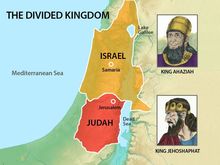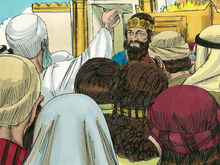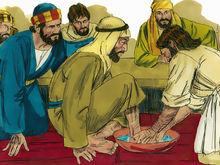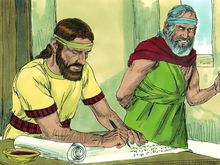By
Mark Morgan
|
Harmonies ,
Jehoshaphat

Bible records in the times of Jehoshaphat
Background
King David ruled over a united kingdom of Israel – the 12 tribes that had entered “the Promised Land”. Today, this land is once again called Israel, although parts are now claimed by the Palestinians and Jordan.
After David’s death, his son Solomon became king and expanded the kingdom even further. Sadly, in later life, love for his many foreign wives led him into idolatry. In response, God said that the kingdom would be split in two during the reign of his son, Rehoboam. After Solomon died, Rehoboam became king, but could not hold the kingdom together. As predicted, the nation split in two: Israel, ten tribes ruled by a rebel called Jeroboam; and Judah, two tribes ruled by Rehoboam.
From then on, until Assyria destroyed Israel, the two nations swung pendulum-like between open war and a troubled co-existence. During this period, Jehoshaphat ruled Judah, following in the godly footsteps of his ancestor David (2 Chronicles 17:3).
Yet Jehoshaphat had a problem: he was too tolerant. Throughout his reign he looked for friendship and partnerships with the kingdom of Israel, despite their dedicated idolatry. He even made a marriage alliance with Ahab, king of Israel – Jehoshaphat’s son Jehoram married Ahab’s daughter Athaliah. Within 30 years, this unholy alliance had very nearly destroyed the kingdom of Judah.
This is also the setting for the work of the prophets Elijah and Elisha.
Parallel records from Kings and Chronicles
Continue reading




